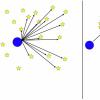I already posted parts of this as a post in an unrelated thread. However, to give a better write up and more convenient place for discussion I’m opening up a new thread to gather ideas and conclusions. This thread is also related to another discussion, but focuses more specifically on the anti-tumor effects:
To summarize the development I give a short overview of the most important results so far:
note: some studies investigated colorectoral cancer (CRC) only, as it is the most common cause of cancer death, after lung cancer (85% caused by smoking, and “easily” avoidable)
2010: https://www.ncbi.nlm...pubmed/20410091
https://www.ncbi.nlm...les/PMC2814533/
2011: https://www.ncbi.nlm...les/PMC3175750/
2013: https://www.ncbi.nlm...les/PMC3671752/
https://www.ncbi.nlm...les/PMC3557824/
These are results from the VITAL study, that investigates lot’s of different supplements and their effect on pathology and mortality. 77,673 participating middle aged to older folks where studied for 10 years. A huge variety of factors were analysed (exercise, age, diet etc.) As a results, of the numerous substances, only Gluco/Chon had a notable independent effect on life span:
Mortality was lowered by 13% vs non-takers of gluco/chon; That increased to 38%-49% when users of NSAID (Aspirin, Ibu) were excluded from the analysis. 33% reduction for non-lung/non-colorectoral cancers + lower mortality for other diseases.
Another analysis of VITAL-data found that lung-cancer was reduced by 26/28% (specifically for adenocarcinomas 39%/50% reduced) for gluco/chon and colorectoral cancer (CRC) decreased by 28%/35%.
Follow-up studies on VITAL-data that analysed different amounts of Glucosamine intake found a 61% reduction of lung cancers and 45% reduction in CRC for high-intake users of Gluco (measured by frequency of intake)
Weakness of the results: supplement patterns were established just once – at the start of the study
2014: https://www.ncbi.nlm...les/PMC3988823/
Glucosamine in human-equivalent dosage extends life of already old mice
2016: https://www.ncbi.nlm...nihms799160.pdf
Another big observational study, observing 68.466 nurses and 27.934 male professionals for 8 years using regularly repeated questionnaires to investigate life style and CRC.
Result: a 25% cancer reduction for users of Gluco/Chon; this increased to 45% for normal weight users (while obese users benefited less for the same intake).
Question: why do obese people benefited less?
2018: https://www.ncbi.nlm...les/PMC5794904/
A smaller Spanish study enrolling 10183 participants to investigate CRC. They calculated a crude reduction of 53% in cases of CRC in gluco/chon consumers.
Weakeness: the number of participants and study design did not allow to statistically disentangle the use of NSAID. Only 99 cases in total used gluco/chon and strongly correlated with NSAID use.
My comment: NSAID use was not independently linked to reduced cancer in the other large scale studies; their results could be adjusted for NSAID use and still confer a strong effect. In addition recent quality big randomized controlled trials (RCT) for aspirin and ibuprofen showed little to no cancer prevention effect (primary prevention).
2018: https://www.ncbi.nlm...pubmed/29411204
113.067 participants of the Cancer Prevention Study II Nutrition cohort, got observed for 10 years to investigate CRC – using regular questionnaires for life style and supplement use.
Result: 17% less cancers for users of Glucosamine
Weakeness: some curious inconsistencies in study outcome. Those using glucosamine for a shorter time period got a 32% reduction in cancer cases. Those using it for a longer time period only 10%.
These are (observational) prospective cohort studies. They can give a suggestion for lines of research – i.e. future research on possible causal relationships for interesting correlations. So far for supplement use the strongest correlation is for glucosamine and cancer. Indeed if we look at large cohort studies or reasonably large RCTs there are – to my knowledge – no studies for any other supplement, that indicate a similar strong association for primary cancer prevention in humans.
There are no RCTs for cancer and glucosamine. But there are different ideas for explanations for the anti-tumor mechanism of glucosamine, that give a potential anti-cancer effect a plausible narrative:
A scientist specializing in energy metabolism (co-author of the mice-paper) suggests a connection to mitochondrial metabolism: http://geroscience.c...ristow-part-ii/
It seems that in-vitro and in-vivo results can proof, that glucosamine exposure in commonly consumed human equivalent doses induces mitohormesis, by preventing cells from relying entirely on glucose metabolism.
In addition – and maybe related - numerous in-vitro studies find, that glucosamine decreases inflammation (there are a dozend papers on this; a selection of 2) :
https://www.ncbi.nlm...pubmed/18295395
https://www.ncbi.nlm...pubmed/15922948
More in-vitro-studies demonstrate, that Glucosamine can upregulate tumor-supressor genes, causing cell cycle arrest and cell death in cancer cells:
https://www.ncbi.nlm...les/PMC5450348/
Glucosamine causes cell-cykle arrest in tumor cells (and up-regluated p21 and p53).
https://www.ncbi.nlm...-2407-14-31.pdfk
Glucosamine activates AMPK and in parallel inhibits mTOR.
https://www.ncbi.nlm...pubmed/28713921
https://www.ncbi.nlm...pubmed/23606170
Glucosamine increases FOXO1/3/AKT activity, by preventing the inactivation of their transcription factors.
https://www.ncbi.nlm.nih.gov/pubmed/20045674
Glucosamine induces autophagy via an mTOR-independent pathway.
Why are these evolving results for Glucosamine relevant?
1. Mortality for cardiovascular disease (CVD) can be almost entirely avoided by life style changes and modern medicine (if not for very unlucky genetics). Even with a perfect life style and perfect genetics the risk for cancer is substantial for current typical life spans (estimates range from 20% to 30% of cancer death in developed countries with no known cause).
2. Cancer – unlike (CVD) – is not well treatable. For example the 5-year-survival-rate for CRC is only 60%-65%. Many other cancers – especially Lung – don’t even match that.
3. Glucosamine is cheap.
4. It’s safe from any (proven) serious side effects - for most there are none at all. For a long time it’s very widely used for (ineffective according to research) joint support. The side effects are established. In placebo studies for Glucosamine use for joint support, side effects are indistinguishable from placebo. Concerns for a possible diabetes promoting effect (caused by a study, that bathed pancreatic cells in a glucosamine doses impossible to achieve by oral ingestion) appear unfounded: https://www.ncbi.nlm...les/PMC3042150/
5. No other supplement so far demonstrated a remotely similar magnitude of primary cancer prevention in healthy humans:
- RCTs for aspirin show generally no effect for primary prevention – or if so no effect on total mortality (possibly due to it’s side effects). It appears to be useful for secondary prevention once you are treated for cancer.
- Vitamin D in 2 recently released RCTs did not result in primary cancer prevention. But it increased survival rates in existing cancer cases
- metformin decreases cancer in diabetics – a group that is at an elevated risk for cancer; the TAME-trial is going to investigate if similar things can be observed in non-diabetics
Glucosamine is safer to use than aspirin and metformin and it’s got evidence for primary prevention in non-morbid cohorts of humans.
So - what are your thoughts? Is it justified to start taking it? At what dose – 500 mg, 1500 mg, 3000 mg a day? The studies – in-vitro and observational – indicate a dose-dependent respone. If anyone uses metformin or aspirin – shouldn't they use glucosamine too, based on the emerging evidence?






























 This topic is locked
This topic is locked



























